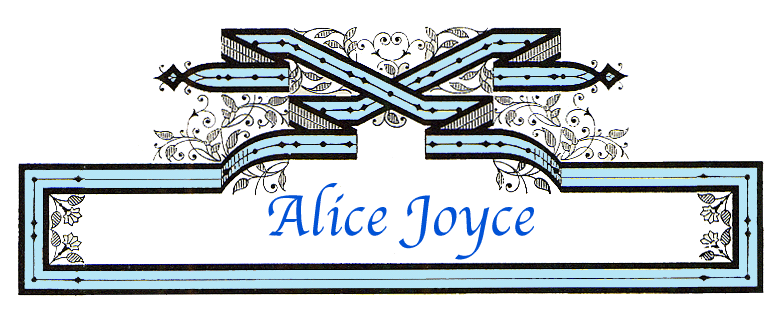

Sorrell and Son (1927) Feature Productions. Distributor: United Artists. Presenter: Joseph M. Schenck. Director-Scenario: Herbert Brenon. Adaptation: Elizabeth Meehan. Photography: James Wong Howe. Set Design: Julian Boone Fleming. Editor: Marie Halvey. Assistant Director: Ray Lissner. Makeup: Fred C. Ryle. Cast: H.B. Warner, Anna Q. Nilsson, Mickey McBan, Carmel Myers, Lionel Belmore, Norman Trevor, Betsy Ann Hisle, Louis Wolheim, Paul McAllister, Alice Joyce, Nils Asther, Mary Nolan. 10 reels, 9,900 ft.
This film was recently rediscovered and restored (Academy Film Archive, poor image quality, last 5 minutes missing). A link to the program notes from Pordenone can be found here (click the Out of Frame link, scroll down about 2/3 of the way and keep scrolling--in Italian with English summary. André Soares interviewed James Hahn, film preservationist at the Academy of Motion Picture Arts and Sciences, on the restoration.
H.B. Warner also starred in a British remake of this film in 1934.
| A still from the Photoplay novel | 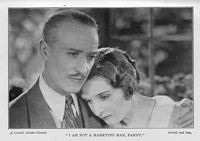 |
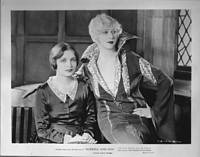 |
 |
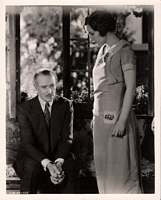 |
 |
| Another still of Joyce | 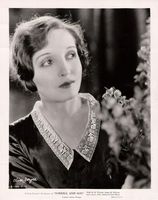 |
|
 |
Two lobby cards |  |
 | An Australian herald |  |
United Artists production and release. Presented by Joseph M. Schenck, Directed by Herbert Brenon from the novel by Warwick Deeping. Featuring H.B. Warner. At the Rivoli, New York. Nov. 12, for a "grind" run. Running time, over 60 min.
| Stephen Sorrell | H.B. Warner |
| Dora Sorrell | Anna Q. Nilsson |
| Flo Palfrey | Carmel Myers |
| John Palfrey | Lionel Belmore |
| Thomas Roland | Norman Trevor |
| Buck | Louis Wolheim |
| Dr. Orange | Paul McAllister |
| Fanny Garland | Alice Joyce |
| Kit Sorrell | Nils Asther |
| Molly Roland | Mary Nolan |
Little doubt that this picture will make money, a lot of it. It's a big draw in every better class theatre in the country; not only on account of the well known novel, but because an age-old and ever beautiful story has been superbly mounted, ably directed and well cast.
Whether this picture will appeal in the 10 and 20 cent houses is problematical. It would not be fair to attempt to analyze the production technically. It becomes cheap melodrama toward the finish. It is composed of the usual elements--sobs, tears, gray hairs and a tragic finish for the British officer who remained a gentleman through the trials that thousands of British officers were forced to undergo in post-war England. But the appeal to the finer sensibilities is irresistible; there's a thoughtful tear in every situation. It may be ever so lightly overdrawn but no sob story ever told in pictures has had a universal appeal unless given that additional shading.
The only reason "Sorrell and Son" is not a $2 picture is because there is no longer any such thing. There aren't two alleged $2 pictures in New York that could get out on the road and break even, discounting any idea of a profit.
It may be a cinch to pull the mother love thing for box office angles, but the love of a father and a son may be intensified many times, although a precarious proposition in constant danger of suffering in the screen treatment. While the movie mob is always willing to accept and ready to understand the heartaches of a mother, they don't fall so hard when it's the old man who is suffering. Perhaps for this reason it is noticeable in the early scenes that Brenon manages his contact between father and son in a manner that defies criticism.
Captain Sorrell, awarded the Military Cross, comes home to find his wife packing up to go away with a new husband. No hysterics and no pleas. The affair is handled naturally. She wants to go because Sorrell has no money. He doesn't want that kind of a woman for a wife, so it's even.
In scrupulously formal attire, top hat, frock coat, cane and gloves, the Captain looks for a job as sales manager. He can't get it. He becomes a hotel porter. That is no exaggeration. It is only too true, even if they don't like the idea in England.
Flo Palfrey (Carmen Myers) was Sorrell's first boss. She scrutinized the Captain carefully. He is obviously a gentleman and she is a bad girl. The idea of being able to order a British officer around, making him clean spittoons and wash the floors, appeals. The manner in which Miss Myers handles this scene is great, and for that reason it is doubtful if it will pass uncensored.
Flo finally gets her hubby drunk and the Captain in her room wiping a mirror late at night. She is in a disturbing state of undress but Sorrell walks out on her and it costs him his job.
Through it all the father and son theme is never once relegated to the background. They're pals. Kit grows up a famous surgeon and then mother puts in a claim for her son's affections. She shows him night life in London, even framing a dame on him. But the boy can't see her as anything but a drunken old woman trying to be young again and he leaves.
One of the big scenes is where the boy, now married, lies awake crying, listening the moans of his father dying in the next room.
Mickey McBan and Betsy Ann Hisle, playing Kit and Molly as children, work like veterans, with a pleasing absence of awkwardness. Nils Asther, as Kit the man, does not seem to register very strongly. Mary Nolan photographs nicely and stands out in her minor role.
Alice Joyce, as the housekeeper of a class inn, is placed in one scene that has little chance out of town. That is where Louis Wolheim, as the head porter, is caught in the girl's room, attired in a dressing gown, with the girl screaming for help.
The closing scene, where Kit has to give his father an extra strong dose of morphine which he knows will kill, can be passed over safely. It is doubtful if that ending will rouse much comment. It seems a logical finish. A dying man asks to be put out of his misery a few hours or a few days sooner and his son, unable to withstand the agony his father is in, has to comply with the request.
It does not seem possible that this picture will miss. Title, story and names are bound to carry it. Besides, it's a good picture.
"Sorrell and Son"
Tearful Picturization of Popular Novel Has Slant Resembling "Stella Dallas"
[Omitted--picture of H.B. Warner & Mickey McBan in the title roles ]
THIS does not look like box-office material. Disguise the issue as you may, the essentials of motion picture drama are not present. Action, suspense and sex interest are missing. And only in very few instances has it been possible to successfully dramatize a state of mind, a tortured mentality, for screen purposes.
The exceptionally fine array of names may attract patronage, and the many readers of the novel should be interested in seeing the photoplay. But it is doubtful whether the Deeping enthusiasts will approve the film version. While the shell of the story has been preserved on the screen, it is served up in a pale and emasculated form.
Thus the love affairs of Roland and Kit are entirely eliminated, and the relationship between Sorrell and Fanny merely intimated. The men who were fairly red-blooded in the book, appear as "virgin men" who are stereotype and uninteresting. And the girl whom Kit finally marries is portrayed by Mary Nolan, the former Imogene Wilson, as a simple English-countryside damsel, rather than the thoroughly sophisticated and modern young writer created by Author Deeping.
There is a profusion of sob stuff, some of which gets over fairly well. But there is no denying that "father-love" is licked to a frazzle by "mother-love" as screen materials.
The big scenes of the picture show the boy performing an epoch-making operation in a hospital clinic, and the administration of an overdose of morphine by the boy to his suffering father in the determination to put him out of the misery of an incurable ailment. Neither of these sequences are suited to the cinema. There is practically nothing of comedy relief.
The best performance in the picture is given by Anna Q. Nilsson in the role of the flighty wife. H.B. Warner is too lachrymose in the role of Sorrell, and entirely too self-sacrificing to be human. Mickey McBan does well as the boy, Kit, and Nils Asther does passable work as Kit grown up--a part in which he is miscast. Alice Joyce is a disappointment as Fanny, and Carmel Myers is effective, but perhaps a bit too florid and exaggerated in her characterization of the wanton innkeeper, Flo Palfrey. Norman Trevor is excellent. So is Louis Wolheim. Mary Nolan fails to impress. Her performance is entirely negligible, even her vaunted beauty failing to register.
The direction is typically Brenon. The workmanship is thorough. The settings often pastorally beautiful. But there is no evidence of exceptional inspiration, such as the director has injected in several previous efforts. As shown at its premier the editing was poor and the continuity suffered from "jumpiness." The titles keep the spirit of the story and lend valuable aid in establishing points which the action fails to register.
There is a decided "Stella Dallas" tinge to the tale, which deals entirely with the sacrifice of a father for a son, rather than off a mother for a daughter, as in the vehicle mentioned.
There are a number of ways in which showmen may make special drives for patronage. There is the popularity of the novel, the fine names in the cast, the obvious play to the fathers and son. The appeal of the picture is strongest to high class, intelligent audiences.
"Sorrell and Son" Lacks the Recognized Requirements for Wide Popular Appeal.
Joseph M. Schenck Presents
Herbert Brenon's Production
"Sorrell & Son"
Adapted from the novel by Warwick Deeping
Directed by Herbert Brenon
Length--9,000 Feet
| Stephen Sorrell | H.B. Warner |
| Dora Sorrell | Anna Q. Nilsson |
| Kit Sorrell | Mickey McBan; Nils Asther |
| Flo Palfrey | Carmel Myers |
| John Palfrey | Lionel Belmore |
| Thomas Roland | Norman Trevor |
| Molly Roland | Betsy Ann Hisle; Mary Nolan |
| Buck | Louis Wolheim |
| Fanny Garland | Alice Joyce |
| Dr. Orange | Paul McAllister |
Length--9,000 Feet.
Captain Sorrell returns from the war to find his wife eloped and his boy dependent upon him. Unable to get work, he finally secures a job as a porter, and sticks to it though many hardships in order to make his son a great surgeon. He lives to see the boy agreat success, and finally dies from an overdose of drug administered by the son the ease his pain.
If there was ever a male weepie, this is it. Single father works his fingers to the bone at menial jobs to raise his son, and even is sexually harrassed by his boss. It is, however, an excellent film and was one of the hits of the 2005 Cinecon. It was copied from a very poor early generation safety print, but the image is still legible. The last few minutes of the film are missing--interestingly, since the rest of the reel was undamaged and the missing parts contained controversial material concerning euthanasia. H.B. Warner gives an outstanding performance as the father, and Carmel Meyers plays a surprisingly slutty innkeeper. Alice Joyce is in an undemanding but important role as his understanding companion and lover through the years.
Print viewed: 35mm print from AMPAS screened at Cinecon 41 (2005), Egyptian Theater, Los Angeles.
Last revised March 29, 2015